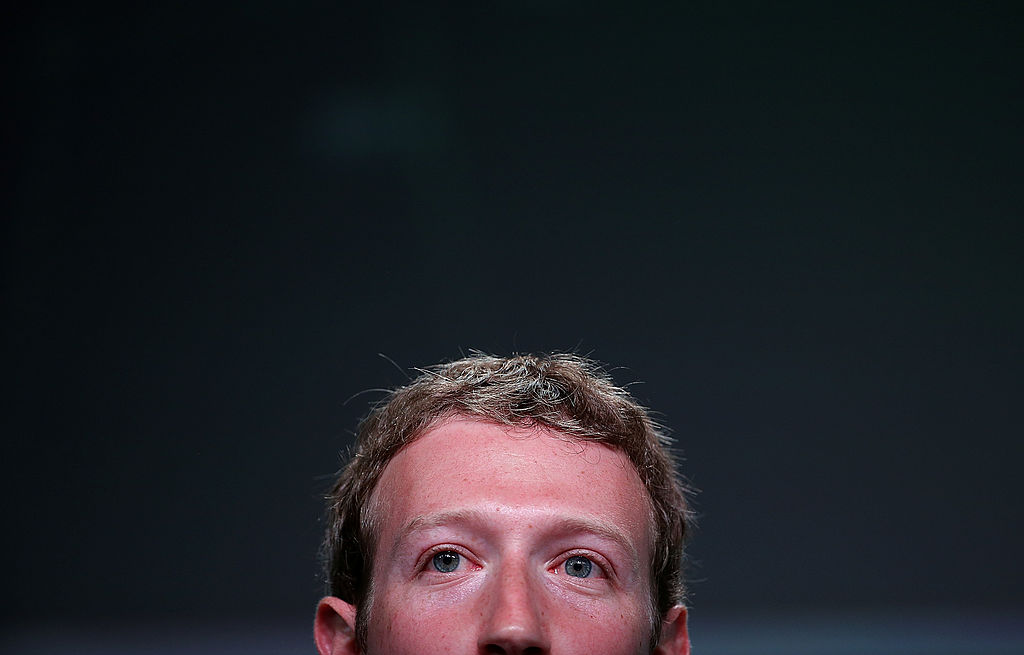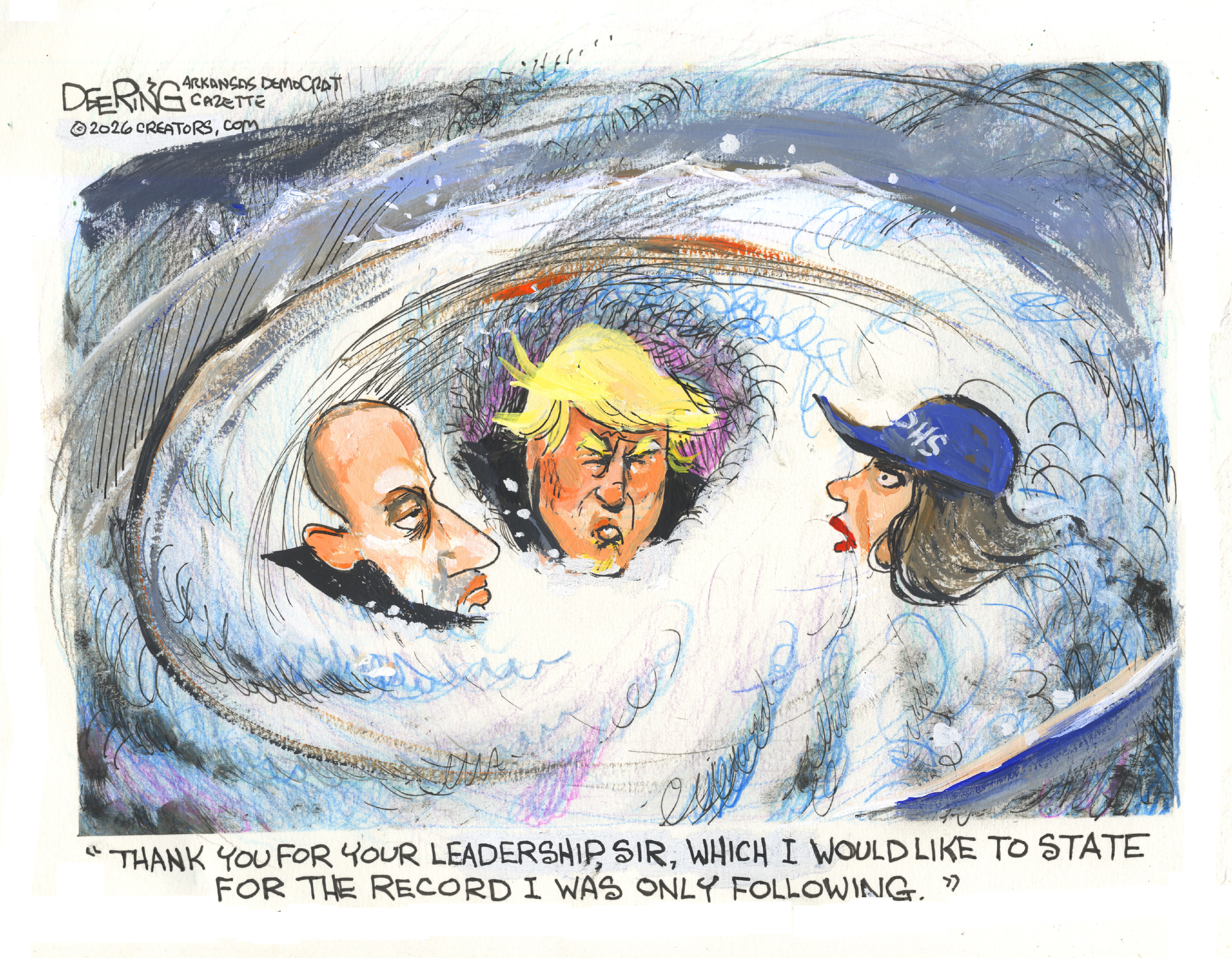Facebook sold $100,000 worth of ads to a Russian 'troll farm' during the election


A free daily email with the biggest news stories of the day – and the best features from TheWeek.com
You are now subscribed
Your newsletter sign-up was successful
Facebook admitted Wednesday that it unknowingly sold $100,000 worth of ads to a Russian "troll farm" during the 2016 presidential election, The Washington Post reports. The ads began running in the summer of 2015 and link back to a St. Petersburg company called the Internet Research Agency, which has been known to push Kremlin propaganda.
Facebook informed congressional investigators Wednesday that it had discovered the link to Russia. "Even though the ad spending from Russia is tiny relative to overall campaign costs, the report from Facebook that a Russian firm was able to target political messages is likely to fuel pointed questions from investigators about whether the Russians received guidance from people in the United States — a question some Democrats have been asking for months," the Post writes.
Confronted with allegations that Facebook served as a hotbed for fake news and propaganda during the election, founder Mark Zuckerberg claimed in November that 99 percent of the news on Facebook was real and only "a very small amount" was untrue. Facebook discovered the ads' links to Russia in an investigation that began this spring.
The Week
Escape your echo chamber. Get the facts behind the news, plus analysis from multiple perspectives.

Sign up for The Week's Free Newsletters
From our morning news briefing to a weekly Good News Newsletter, get the best of The Week delivered directly to your inbox.
From our morning news briefing to a weekly Good News Newsletter, get the best of The Week delivered directly to your inbox.
The Russian ads were "directed at people on Facebook who had expressed interest in subjects explored on those pages, such as LGBT community, black social issues, the Second Amendment, and immigration," a Facebook official told the Post. While the social media company would not reveal what exactly the ads were, the Post reveals Donald Trump and Hillary Clinton were directly named.
During its investigation, Facebook uncovered 470 suspicious or fraudulent accounts and pages it believes are linked to Russia. A total of 3,300 ads led back to the troll farm. Read the full report at The Washington Post.
A free daily email with the biggest news stories of the day – and the best features from TheWeek.com
Jeva Lange was the executive editor at TheWeek.com. She formerly served as The Week's deputy editor and culture critic. She is also a contributor to Screen Slate, and her writing has appeared in The New York Daily News, The Awl, Vice, and Gothamist, among other publications. Jeva lives in New York City. Follow her on Twitter.
-
 6 gorgeous homes in warm climes
6 gorgeous homes in warm climesFeature Featuring a Spanish Revival in Tucson and Richard Neutra-designed modernist home in Los Angeles
-
 Russia’s ‘cyborg’ spy pigeons
Russia’s ‘cyborg’ spy pigeonsUnder the Radar Moscow neurotech company with Kremlin-linked funding claims to implant neural chips in birds’ brains to control their flight, and create ‘bio-drones’
-
 Political cartoons for February 8
Political cartoons for February 8Cartoons Sunday’s political cartoons include going down the drain, American history, and more
-
 TikTok secures deal to remain in US
TikTok secures deal to remain in USSpeed Read ByteDance will form a US version of the popular video-sharing platform
-
 Unemployment rate ticks up amid fall job losses
Unemployment rate ticks up amid fall job lossesSpeed Read Data released by the Commerce Department indicates ‘one of the weakest American labor markets in years’
-
 US mints final penny after 232-year run
US mints final penny after 232-year runSpeed Read Production of the one-cent coin has ended
-
 Warner Bros. explores sale amid Paramount bids
Warner Bros. explores sale amid Paramount bidsSpeed Read The media giant, home to HBO and DC Studios, has received interest from multiple buying parties
-
 Gold tops $4K per ounce, signaling financial unease
Gold tops $4K per ounce, signaling financial uneaseSpeed Read Investors are worried about President Donald Trump’s trade war
-
 Electronic Arts to go private in record $55B deal
Electronic Arts to go private in record $55B dealspeed read The video game giant is behind ‘The Sims’ and ‘Madden NFL’
-
 New York court tosses Trump's $500M fraud fine
New York court tosses Trump's $500M fraud fineSpeed Read A divided appeals court threw out a hefty penalty against President Trump for fraudulently inflating his wealth
-
 Trump said to seek government stake in Intel
Trump said to seek government stake in IntelSpeed Read The president and Intel CEO Lip-Bu Tan reportedly discussed the proposal at a recent meeting
